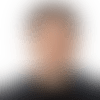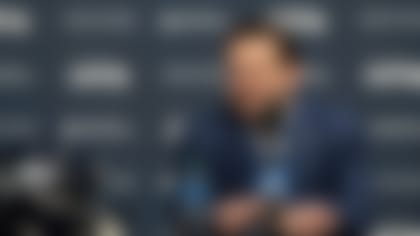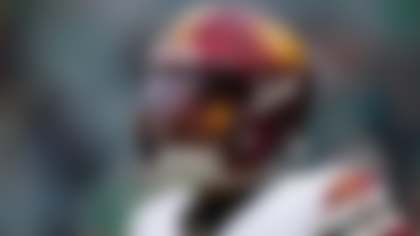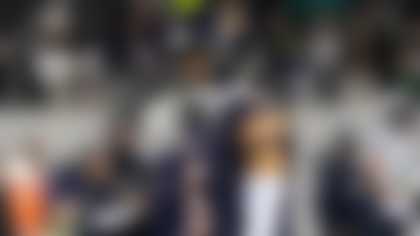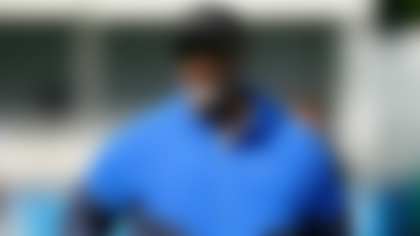Ezekiel Elliott said a year ago that playing running back on the Dallas Cowboys is one of the easiest jobs in America. That assertion, which will be tested during Elliott's six-game suspension to start the season, would be more accurate if Elliott had mentioned a different starting spot on the Cowboys' offense.
Without further ado, here's the second annual look at the easiest -- and hardest -- gigs in professional football. Starting with a role in that Dallas running game ...
Easiest jobs
» Dallas Cowboys left guard: Playing behind the Cowboys' offensive line is a blast. Just ask DeMarco Murray's agent or Dallas running back Darren McFadden, who was effective in spurts as the Cowboys' starter in 2015. Playing on Dallas' offensive line sandwiched between two All-Pros, with another layer of All-Pro added on top, is even cushier.
Ronald Leary wasn't even supposed to start at left guard last year, but the injury replacement parlayed his season into a $36 million contract with Denver. Playing between left tackle Tyron Smith and center Travis Frederick covers up most weaknesses, and it doesn't hurt that guard Zack Martin is on the right side. This surplus of talent explains why the Cowboys appear so unconcerned with the position despite a shaky training camp from their starting candidates: injury-prone third-year pro Chaz Green, former top-10 pick Jonathan Cooper and journeyman Byron Bell. Difficult early regular-season matchups against the Giants, Broncos and Cardinals will challenge just how foolproof this position is.
» New Orleans Saints vertical receiver: The job description would go something like this:
Wanted: Really, really fast guy to take the top off defenses.
Skills required: Did we mention fast?
Benefits: Sean Payton will get you wide open 2-3 times a game. Don't blow this.
Ted Ginn Jr. is now playing the role popularized by Devery Henderson, given to Robert Meachem and Kenny Stills, then taken to another level by Brandin Cooks. Ignore the never-ending talk about Drew Brees' arm strength and examine the numbers. Brees remains one of football's most effective vertical passers, in part because defenses crowd the line of scrimmage to stop the Saints' complex horizontal offense. Ginn is a better NFL player than his reputation, but he's already dropped one touchdown as a member of the Saints. He should have a chance to drop a lot more.
» Seattle Seahawks defensive coordinator: Dan Quinn and Gus Bradley were both fantastic during their time as Seattle's DC, but they will readily admit how much they benefitted from coaching under Pete Carroll with such a deep reservoir of talent. This is a system so proven that the team's third-place finish in points allowed in 2016 was viewed as a down season.
Seattle's latest coordinator, Kris Richard, has done a fine job carrying the mantle for a unit loaded with big personalities. He has the luxury of coaching perhaps the most cohesive, intelligent core of defensive players the NFL has seen this century. It might be a long time before we see a group as gifted as Michael Bennett, Cliff Avril, Richard Sherman, K.J. Wright, Bobby Wagner, Kam Chancellor and Earl Thomas stay intact for five straight seasons.
» Tennessee Titans running back:DeMarco Murray learned in Philadelphia how vital it is for a running back to play in the right system. Tennessee's dizzying, power-based ground game rewards Murray's decisive, hard-charging style. Both Murray and backup Derrick Henry are prime talents who finish runs, leaning on defenses to gain extra yards every snap. Both Murray and Henry benefit greatly from a stacked offensive line built to crush other large men like the group crushes post-goal beers.
» Pittsburgh Steelers quarterback:Ben Roethlisberger was severely underrated for years, better than his numbers and his surrounding talent. His teammates picked him up for the first time in 2016. Le'Veon Bell and Antonio Brown, both in their primes, rank with any RB-WR combination of the century. The Steelers' offensive line has never been better or had more continuity than it does now. Roethlisberger has now played under coordinator Todd Haley longer than he did under Bruce Arians. (And they said it wouldn't last.) The return of Martavis Bryant adds another game-changing deep threat. More than any time in his career, Roethlisberger has it made.
Hardest jobs
» New York Jets head coach and offensive coordinator: Ignore the ingrained desperation of the Jets fan base, a home crowd conditioned to expect the worse at the first sign of trouble. Instead, look at a roster that ranks among the bottom-five NFL teams in talent at quarterback, wide receiver, tight end and on the offensive line.
New York's OC job is one that Broncos RB coach Eric Studesville turned down before first-time NFL coordinator John Morton accepted the gig, making him the team's fifth offensive coordinator in seven seasons. Studesville was likely concerned about the lack of job security on a team that appears to be starting all over. Again.
The Jets' lack of draft success throughout the decade leaves head coach Todd Bowles in a precarious situation. Winning five games with this roster would qualify as overachieving, but that might not be enough for an organization which has quickly pivoted from prior plans, even after preaching patience.
» Atlanta Falcons offensive coordinator: You don't need to be an analytics expert to understand that the Falcons' offense will regress to the mean. That was inevitable, even if Kyle Shanahan hadn't left town and been replaced by longtime college coach Steve Sarkisian.
You don't want to be the guy after The Guy. You want to be the guy after the guy after The Guy. Even if Matt Ryan plays near his MVP level of 2016, it's too much to expect his offensive line to stay as healthy or his secondary receivers to make as many big plays after the catch. This was an offense that, as the Football Outsiders Almanac noted, scored on 55.4 percent of its drives, nearly toppling the 2007 Patriots' all-time record. Offenses like the 2016 Falcons happen only once a decade, but good luck telling that to Atlanta fans searching for a scapegoat when the unit inevitably takes a step back.
» Houston Texans quarterback: Rookie Deshaun Watson is built to break the cycle of turnover in Houston, but playing quarterback under Bill O'Brien is not for the faint of heart. In just three seasons, he's rolled through Ryan Fitzpatrick, Ryan Mallett, Case Keenum, Brian Hoyer, Brock Osweiler and Tom Savage, along with emergency pit stops for Brandon Weeden and T.J. Yates.
Savage is the favorite to start in Week 1, but this will be Watson's job sooner than later, especially if he shows the savvy he did in his first preseason game. O'Brien can be a famously demanding coach with a difficult system for young players to learn -- a situation exacerbated by the Texans' poor offensive line and lack of receiver depth following starter Will Fuller's broken collarbone. Watson's proven ability to handle pressure will serve him well.
» Indianapolis Colts offensive coordinator, quarterback coach and defensive coordinator: It's never easy for coaches when an organization is in transition. General manager Chris Ballard arrived after owner Jim Irsay chose to retain coach Chuck Pagano's staff and change the direction of the franchise. Ballard's complete overhaul of the team's defense was necessary, but it makes life complicated for defensive coordinator Ted Monachino. I watched Colts practice in Indianapolis on Wednesday, where third-year player T.J. Green lined up as a starting cornerback and Matthias Farley lined up as a starting safety. Green converted from the safety position one day prior, having been told about the move an hour before practice. Farley was an undrafted rookie in 2016 who was claimed off waivers from Arizona. In short, this team is searching.
It's not like the reformed defense can expect early support from the offense. Offensive coordinator Rob Chudzinski was tasked with installing an offense without a quarterback capable of consistently completing passes at practice. (Wednesday's practice was tough to watch.) There isn't a single healthy quarterback on the roster who was even drafted in the first place. Starter Scott Tolzien, undrafted out of Wisconsin in 2011, is on his fourth NFL team. The current backup is an unheralded 5-foot-11 rookie out of Temple (Phillip Walker). Quarterbacks coach Brian Schottenheimer has his hands full.
Perhaps Andrew Luck will recover from his shoulder surgery and return good as new early in the season to save the franchise. But Luck's long-term health is the priority here, not the 2017 season. Oh, and did I mention that Luck's batterymate, center Ryan Kelly, now needs foot surgery?
For Colts coaches, this is a high-wire act -- without a net.
